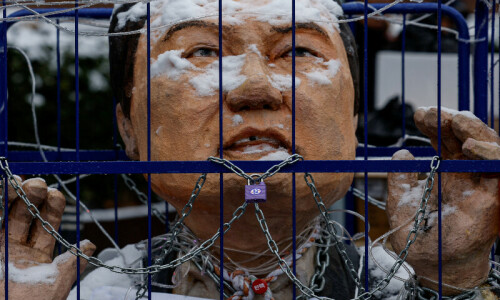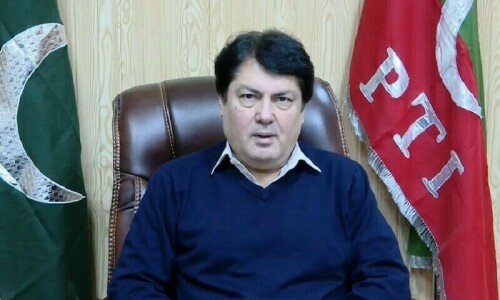“ALL history is the history of thought,” R. G. Collingwood, the English philosopher and historian, once remarked.
But some have rejected the concept that history and ‘history of ideas’ are synonymous with each other. Another term that has been topic of contentious debates is ‘intellectual history’. Some think ideas and thoughts are the main subject of ‘history of ideas’, while others say ideas and disseminating them are two different things. So disseminating ideas is what ‘intellectual history’ is concerned about, they say.
Literary history is yet another issue: history of literature is a form of historiography and its subject is literature. But historians usually do not write literary histories and feel that critics — we call them literary historians — are not qualified to write history. On the other hand, critics feel historians are not competent enough to write on literature. The problem is literature is created against a specific cultural, political and social backdrop, but it is basically the literary features, such as use of language and rhetorical techniques, that gives the text a uniqueness that is often known as ‘literariness’.
The dilemma is that literature is not history and cannot replace history as source, but certain literary genres are known to have provided history with source material, for instance, autobiographies and letters recording historical events as eyewitness. Secondly, fiction does not claim to be true but it does reflect some events that are not recorded in history and tell us the real sentiments of common people.
This unresolved or unexplainable connection between history and literature comes up every time some literary history is published. But for a student of Urdu literature, such as this writer, histories of Urdu literature are keys that open the door to a panoramic view of literature with its aesthetic and socio-cultural perspectives. This enables us to see literary texts, literary movements and literary trends as and when they are influenced by politico-social happenings and philosophical thoughts. In other words, literature is a kind of intellectual history.
The Pakistan Academy of Letters (PAL) has just come up with a series of books recording history of Pakistani Urdu literature written with social and political circumstances in mind. Coinciding with Diamond Jubilee celebrations of Pakistan’s independence, these books are intended to record, preserve and disseminate the intellectual, social and cultural factors that helped shape Pakistani Urdu literature during 75 years of independence, writes PAL chairman Dr Yousuf Khushk in his foreword.
A book in the series is Pakistan Mein Urdu Afsana. Researched, compiled and analysed by Mirza Hamid Baig, the book gathers together 71 Urdu short stories written in Pakistan. Aside from some big names, such as Manto, some other influential and essential names, otherwise ignored, have made it to the compilation. What has lent the collection more authenticity is in-depth analytical review penned by Hamid Baig, presented before each and every short story along with a note that introduces writer.
Another book that takes into account literary as well as social circumstances while describing literary history is Pakistan Mein Urdu Ghazal. Written by Khawer Ejaz, the book surveys, in two volumes, Pakistani Urdu ghazal with its aesthetic and literary traditions. Book introduces each poet with its selected verses and is a delectable reading experience.
As for other poetic texts, prose poem is one of the genres that have achieved phenomenal success, threatening to displace ghazal from throne that ghazal has been holding for centuries. Compiled by In’aam Nadeem, Pakistan Mein Urdu Nasri Nazm proffers select prose poems with introductory notes, indeed a labour of love.
Pakistani Urdu novel is another phenomenon that captures Pakistani society with its minute details. Rafaqat Hayat has done a wonderful job by collecting excerpts from Pakistani Urdu novel in his book Pakistan Mein Urdu Novel, with introduction and analytical notes. It was no easy task, as Pakistani novel has really come of age in the last two decades and of late, contrary to common assumption, Urdu novels written in Pakistan are great in numbers.
Yet another book in series presents selected national songs and patriotic poetry. Aptly titled Pak Sar Zameen Shaad Baad and compiled by Khursheed Rabbani, it includes some very popular songs and poems.
The entire history of Pakistani Urdu literature with a thumbnail summary of development of literary genres in Pakistani Urdu literature is encapsulated by Ghafoor Shah Qasim in his book Pakistan Mien Urdu Adab Ki Tareekh. The slim volume is an essential guide for those who want to keep themselves abreast with up-to-date history of literary genres in Pakistani Urdu literature.
These books reflect how Pakistan’s Urdu literature was influenced by political events and socio-cultural factors, signposting Pakistan’s history. In fact, with the help of these books one can start to work on Pakistani Urdu’s literary canon.
Published in Dawn, November 21st, 2022














































Dear visitor, the comments section is undergoing an overhaul and will return soon.